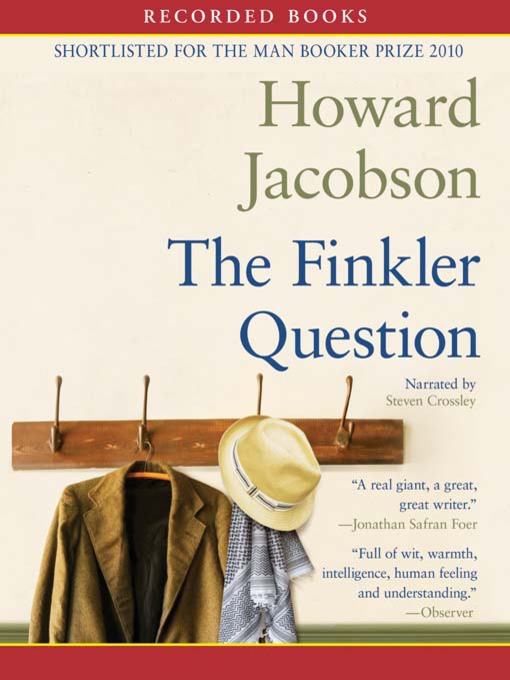
The Finkler Question
فرمت کتاب
audiobook
تاریخ انتشار
2010
نویسنده
Steven Crossleyناشر
Recorded Books, Inc.شابک
9781449870836
کتاب های مرتبط
- اطلاعات
- نقد و بررسی
- دیدگاه کاربران
نقد و بررسی

Jacobson's novel creates a comedic portrait of the lives of two old school friends, their ancient teacher, and a cast of often-bizarre North London friends and family. Listening to Steven Crossley portray the perennial Jewish/Gentile shtick, one laughs out loud. He performs the character stereotypes to perfection, including that of Julian Treslove, the Gentile who is having a midlife crisis. When Julian can't comprehend the unreasonable complexities of his life, Crossley makes us vividly imagine his "deer-in-the-headlights" responses. This novel is poignant, beautifully written, and flawlessly delivered. Crossley is a master of interpretation. One needs to experience his near-perfect renditions of all the characters in this delightful work. M.C. Winner of AudioFile Earphones Award (c) AudioFile 2011, Portland, Maine

Starred review from October 11, 2010
Winner of the 2010 Booker Prize, Jacobson’s wry, devastating novel examines the complexities of identity and belonging, love and grief, through the lens of contemporary Judaism. Julian Treslove, a former BBC producer who works as a celebrity double, feels out of sync with his longtime friend and sometimes rival Sam Finkler, a popular author of philosophy-themed self-help books and a rabidly anti-Zionist Jewish scholar. The two have reconnected with their elderly professor, Libor Sevcik, following the deaths of Finkler and Libor’s wives, leaving Treslove—the bachelor Gentile—even more out of the loop. But after Treslove is mugged—the crime has possible anti-Semitic overtones—he becomes obsessed with what it means to be Jewish, or “a Finkler.” Jacobson brilliantly contrasts Treslove’s search for a Jewish identity—through food, spurts of research, sex with Jewish women—with Finkler’s thorny relationship with his Jewish heritage and fellow Jews. Libor, meanwhile, struggles to find his footing after his wife’s death, the intense love he felt for her reminding Treslove of the belonging he so craves. Jacobson’s prose is effortless—witty when it needs to be, heartbreaking where it counts—and the Jewish question becomes a metaphor without ever being overdone.

























دیدگاه کاربران